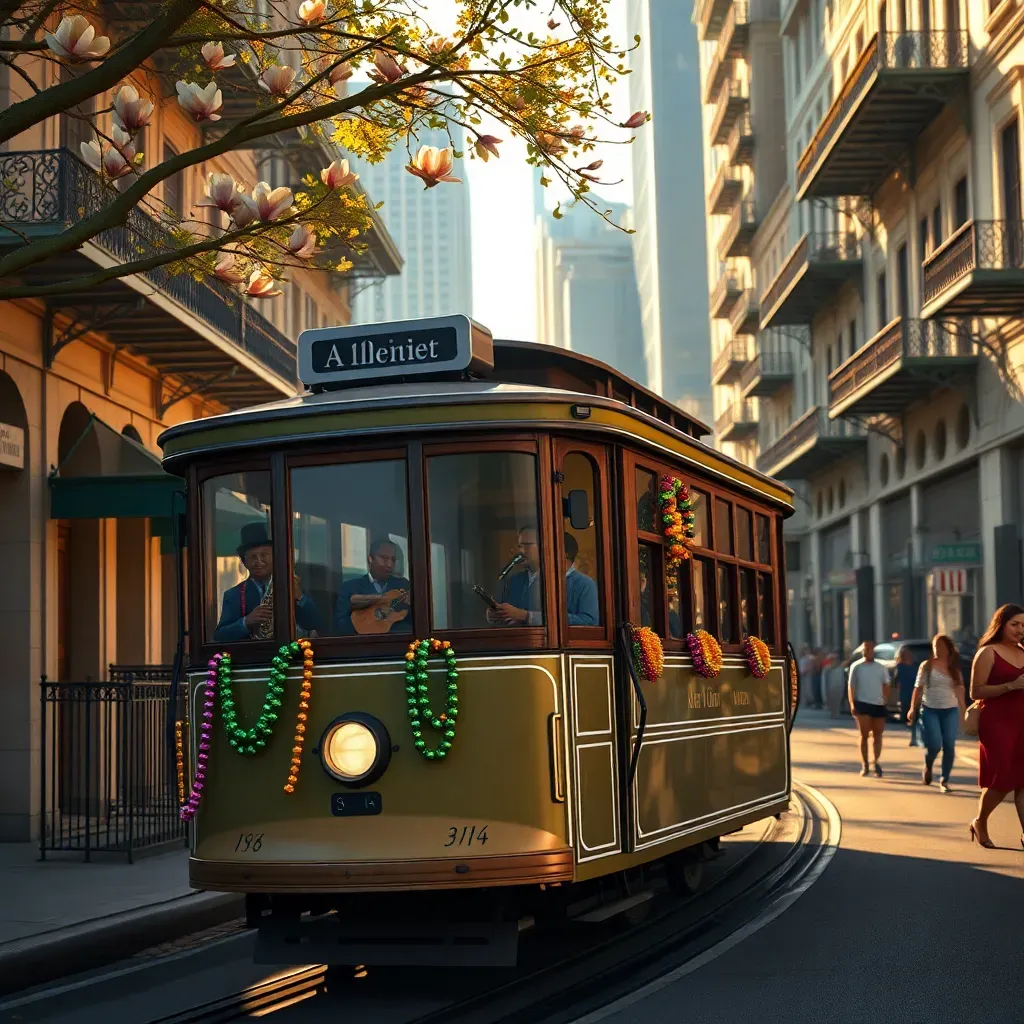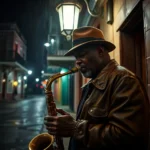Is New Orleans moving to chaos? What you need to know
- What Makes New Orleans a “Sketchy” City? Understanding the Crime and Safety Landscape
- Who’s Moving to New Orleans and Why? The Real People Behind the Move
- Neighborhoods and Streets: Where to Find Safety and Where to Watch Out
- How New Orleans Compares to Other Risky Towns in the US
- The Real Risks of Moving to New Orleans: Weather, Crime, and Urban Challenges
- Community, Culture, and Crime Prevention: Can New Orleans Move Toward Safety?
- Opinions From Real People: What Locals and Newcomers Say About Moving to New Orleans
- Is New Orleans Moving to Chaos or Just Growing Pains?
- Ready to Explore New Orleans? Here’s How to Start Smart
- References and Further Reading
What Makes New Orleans a “Sketchy” City? Understanding the Crime and Safety Landscape
New Orleans often gets tagged as a sketchy or risky city, but what does that really mean? When folks say a place is rough, dodgy, or shady, they usually mean areas where crime incidents pop up more often, especially violent crime, gang activity, or drug-related issues. It’s about neighborhoods where people feel less safe walking around at night or where police presence is spotty.
Compared to other dangerous cities in the US like Chicago, Detroit, Baltimore, St. Louis, Memphis, Philadelphia, Cleveland, and Oakland, New Orleans ranks high in certain crime categories. Violent crime rates, including aggravated assault and robbery, tend to be above the national average. Gang-related violence and drug crimes are also challenges in some parts of the city.
Socioeconomic factors play a big role here. Poverty, unemployment, and educational gaps contribute to the urban challenges New Orleans faces. Some neighborhoods struggle with abandoned properties and limited resources, which can create environments where crime is more likely.
That said, local police and community groups are actively working to improve safety. Community policing programs and neighborhood crime watches have been set up in many areas to build trust and reduce incidents. Police response times can vary, especially in gritty or messed-up parts of town, but efforts continue to address these challenges.
Who’s Moving to New Orleans and Why? The Real People Behind the Move
Despite the risky reputation, plenty of people are moving to New Orleans for various reasons. Here’s a look at the main groups:
- Military personnel stationed nearby often move in spring, preferring suburban neighborhoods that offer quieter streets and family-friendly vibes.
- Doctors and medical residents rush to find homes close to hospitals, often settling in neighborhoods with easy commutes and affordable rents.
- Native locals who left for a while come back to reconnect with family and the city’s rich culture — many mention missing the food, music, and community spirit.
- Grandparents relocate to be near their grandkids once younger family members have settled down.
- Retirees are drawn by the city’s unique vibe and relatively affordable living costs compared to other US cities.
- People who fell in love with New Orleans — sometimes after a Mardi Gras visit — decide to make it their forever home, embracing the city’s quirks and charm.
Reddit threads like r/AskNOLA reveal firsthand stories from these groups. For example, one military family shared how they chose a suburb for safety and schools, while a young doctor talked about juggling residency with house hunting in a competitive market.
Work-from-home trends also influence moves. Some tech workers can live anywhere, so they pick New Orleans for lifestyle reasons, while others find local IT jobs harder to come by.
Neighborhoods and Streets: Where to Find Safety and Where to Watch Out
New Orleans is a patchwork of neighborhoods, each with its own vibe and safety profile. Here’s a simple breakdown:
- Safer neighborhoods Areas like Lakeview, Gentilly, and parts of the Garden District tend to have lower crime rates and more community policing.
- Dodgy or shady areas Some parts of Central City, the 7th Ward, and parts of the Lower Ninth Ward have higher reports of gang activity and violent incidents.
- Gritty but culturally rich The Bywater and parts of the Marigny attract artists and young people despite some safety concerns, thanks to vibrant culture and nightlife.
- Suburban favorites Military families and retirees often pick suburbs like Metairie and Kenner for quieter streets and family-friendly amenities.
| Neighborhood | Crime Rate (approx.) | Amenities | Housing Costs (approx.) |
|---|---|---|---|
| Lakeview | Low | Good schools, parks | $250k - $400k |
| Central City | High | Some community programs | $100k - $200k |
| Bywater | Medium | Art scene, nightlife | $200k - $350k |
| Metairie (Suburb) | Low | Family-friendly, shopping | $180k - $300k |
Before moving, it’s smart to check local police reports and join community groups online to get a feel for the area. Talking to neighbors and visiting at different times helps too.
How New Orleans Compares to Other Risky Towns in the US
Here’s a quick comparison of New Orleans with other wild and unsafe cities in the US:
| City | Violent Crime Rate (per 100k) | Police Presence | Community Programs | Quality of Life |
|---|---|---|---|---|
| New Orleans | ~600 | Moderate | Growing | Unique culture, weather risks |
| Chicago | ~550 | High | Strong | Urban, diverse economy |
| Detroit | ~700 | Moderate | Developing | Economic challenges |
| Baltimore | ~650 | Moderate | Active | Historic, urban issues |
| St. Louis | ~750 | Moderate | Some | Midwest city, crime hotspots |
| Memphis | ~700 | Moderate | Growing | Music heritage, urban struggles |
| Philadelphia | ~500 | High | Strong | Historic, diverse |
| Cleveland | ~600 | Moderate | Developing | Rust belt city |
| Oakland | ~650 | Moderate | Active | West Coast, diverse |
While New Orleans shares many challenges with these cities, its cultural richness and community efforts set it apart. Some neighborhoods have seen improvements, but others still struggle with crime spikes.
The Real Risks of Moving to New Orleans: Weather, Crime, and Urban Challenges
Living in New Orleans means dealing with more than just urban crime. Natural risks like hurricanes, flooding, and the city’s sinking land add layers of complexity. These factors affect insurance costs, home maintenance, and daily life.
Insurance premiums for homeowners can be steep due to flood risk. Newcomers often find themselves surprised by these expenses. Stories from residents talk about preparing for hurricane season with emergency kits and evacuation plans.
Combined with urban crime and public safety concerns, these natural risks mean living in New Orleans requires some extra planning and awareness.

Community, Culture, and Crime Prevention: Can New Orleans Move Toward Safety?
Despite the challenges, New Orleans is full of community spirit. Local groups organize neighborhood watches, cultural festivals, and clean-up events that build bonds and deter crime.
Community policing efforts aim to improve trust between residents and law enforcement. Cultural events like Jazz Fest and Mardi Gras bring people together and showcase the city’s resilience.
Locals often express pride in their city’s messy but vibrant character. Many believe that by working together, New Orleans can keep moving toward a safer future.
Newcomers can get involved by joining local groups, attending meetings, and supporting community initiatives.
Opinions From Real People: What Locals and Newcomers Say About Moving to New Orleans
“I moved here for the culture and food, but I quickly learned to be cautious about where I walk at night. The community is strong though, and that makes a difference.” – Reddit r/AskNOLA user source
“Living in the suburbs near New Orleans has been great for my family. We get the city vibe without the constant worry about crime.” – Local blog comment source
“New Orleans is wild and sometimes dicey, but the music and food scene make it worth it. Just gotta know your neighborhoods.” – TripAdvisor forum source
Is New Orleans Moving to Chaos or Just Growing Pains?
New Orleans is a city of contrasts. It faces real challenges with crime, weather risks, and urban struggles, but it also offers a unique culture and community spirit that few places can match.
Who’s moving here? From military folks to retirees, locals returning home, and those who fell in love with the city’s vibe, there’s a diverse crowd willing to embrace both the good and the messy.
Safety depends a lot on where you live and how you engage with your neighborhood. With awareness and community involvement, New Orleans continues to grow and adapt.
Ready to Explore New Orleans? Here’s How to Start Smart
Thinking about making the move? Start by researching neighborhoods carefully and visiting in person. Chat with locals, check out community groups, and keep an eye on local safety updates.
If you want help with home buying or neighborhood info, reach out to local experts and sign up for newsletters that keep you in the loop.
Remember, New Orleans is a city with a lot to offer — but it’s best to move here with eyes wide open.
References and Further Reading
- Don’t Move to New Orleans - BeNewOrleans
- Move to New Orleans? - Reddit r/AskNOLA
- Who is Moving to New Orleans? - BeNewOrleans
- Moving to New Orleans - InterNations
- 15 Honest Pros & Cons of Living in New Orleans
- Where people in New Orleans are moving to most - WGNO
- Moving to New Orleans: Your Guide - SpareFoot
- We are moving to New Orleans HELP!!! - TripAdvisor
- Moving to New Orleans - MoveHub
What do you think about the safety and lifestyle in New Orleans? Have you considered moving there or already made the jump? How would you like to see the city improve its community safety? Share your thoughts, questions, or stories in the comments below!
 Is New Orleans family safety a myth? What parents must know
Is New Orleans family safety a myth? What parents must know Is New Orleans dangerous? Shocking truths every visitor must know now
Is New Orleans dangerous? Shocking truths every visitor must know nowSi quieres conocer otros artículos parecidos a Is New Orleans moving to chaos? What you need to know puedes visitar la categoría Louisiana.

Leave a Reply